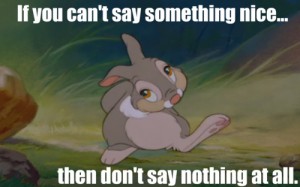Last week I got a Facebook message from a friend from another agency that I’d known for 25 years. Like me, she’s approaching the end of her career in the federal government. In her message, she just wanted to say “hi,” update me on life events, and say thanks for being a friend. We never worked in the same agency. We never even worked in the same state. In fact, she relocated even further away about ten years ago and I’ve not even worked with her since then, but we are still friends.
How did that friendship happen? We didn’t intend to become friends; in fact we often were on opposite sides of an issue, each defending our respective agency’s mission. So when did the debates evolve into friendship?
When I started working in the government, making friends was really the last thing on my mind. I was hired as a GS-5 summer hire, and soon after was hired on as a GS-7/9/11. I had several small children at home, so I did my job and went home to my other activity – parenting. As any parent knows, this is an important, but often thankless job, but nuggets of kid-snuggles and toddler hugs keep you coming back. Unlike at home, however, at work I was getting continuous positive feedback for my efforts. I was being acknowledged and felt appreciated. The work was enjoyable, and the debates with other agency personnel were intellectually stimulating. I respected my counterparts in the U.S. Fish and Wildlife Service and National Park Service, as well as my co-workers.
From Co-Worker to “Sibling”
Within the Corps, my long-term co-workers and I became a family of siblings; eating together, pranking each other, sharing troubles and joys. We’ve been through children and grandchildren, marriages and divorces, reorganizations and RIFs. Several of the women have even gotten together for annual camp-outs (dubbed “PMS in the Woods“) and other after-hours get-togethers. Although most of these friends have retired now, we still get together monthly for lunch. But life goes on, and new friendships have emerged as my job duties changed and new staff are hired.
In my situation, the friendships developed naturally based on the amount of time spent together, mutual respect, and a lot of laughter. Having friends at work certainly makes the daily grind more enjoyable, and increases personal resilience. It was through another workplace friendship across agencies that I was introduced to local music “jams” in my community, which led to other friendships, and eventually the formation of a band. Friendships enrich our lives, well worth the time it takes to develop and maintain those relationships.
Today’s Workplace
I think it may be harder to make friends at work these days (more about this in a future post, “The Decline of Camaraderie”), and how unfortunate for new employees starting government work today, since we are certainly more busy than we were back when I started. There are some offices that actually frown on workplace friendships, but that concept has been debunked in this Forbes article.
Tips for Developing Friendships at Work
Here are some tips that can help develop workplace friendships:
- Be a friend. If you are friendly, others will likely respond in kind.
 Respect your co-workers. Those cubicle walls are thin, my friend, and there’s no privacy. So, as Thumper says, “if you can’t say something nice, don’t say nothin’ at all.”
Respect your co-workers. Those cubicle walls are thin, my friend, and there’s no privacy. So, as Thumper says, “if you can’t say something nice, don’t say nothin’ at all.”- Hang out after hours. This used to be commonplace among employees 25 years ago, but now seems rare.
- Meet for lunch. Again, this is something we did all the time when I first started, but now I may join a co-worker for lunch only once a week.
- Bring food. Anyone showing up with a dozen donuts will gain the appreciation of co-workers, and hey, that’s the first step toward friendship!
- Laugh! Admit it – your office resembles a scene from Dilbert or Office Space sometimes, so rejoice in that, and share a laugh with your colleagues.
Remember that we are all in this together, so make the best of your time at work. Our co-workers may see us more than our spouses or children, so it helps to have positive relationships for this daily interaction. I’m trusting that you know the limits (no sexual harassment or drunken tirades…), but just in case, there are some cautions listed in this U.S. News article. Suggestions from this Forbes article are also good.
Feel free to share your thoughts on workplace friendships in the comments!
Becky Latka is part of the GovLoop Featured Blogger program, where we feature blog posts by government voices from all across the country (and world!). To see more Featured Blogger posts, click here.





I believe that workplace friendships can be very inspiring to the workplace environment. However, what happens when your friend becomes your boss or does something, at work, that you don’t agree with, and it rubs you the wrong way? How do you handle the uncomfortable feelings. Do you address them? Or, do your separate work from personal? What happens when your friend does too much, or unnecessarily tries to make an example of you, just to prove to everyone that they are not showing favoritism.
Good points! I have had two of my friends become my bosses, and it does (and should) change the “at work” dynamic. Ideally, this change should initiate from the boss-friend, since there are “boundaries” to work within between supervisors and employees. The key to remaining friends is to talk through this change, and note that there will be differences as the “peer-friend” becomes “boss-friend.” With regard for “uncomfortable feelings,” I’m all for addressing them and clearing the air, especially if you value the friendship.
Great article, friendships definitely are one of the things that keeps us coming to a certain job when things are rough.
Thanks Brenda! I totally agree!